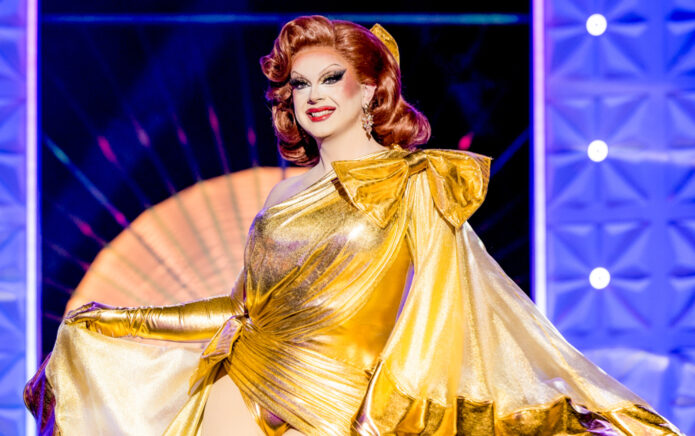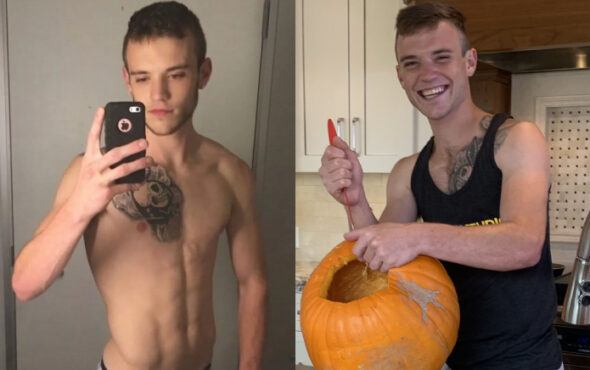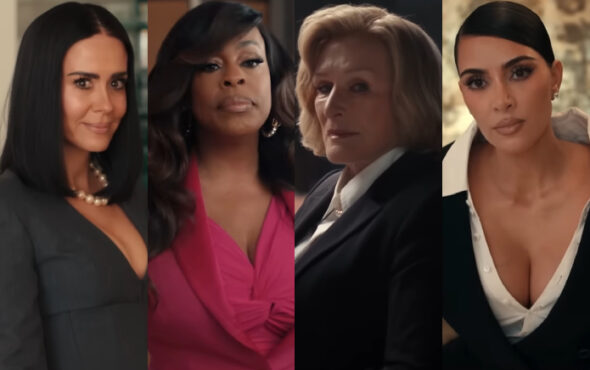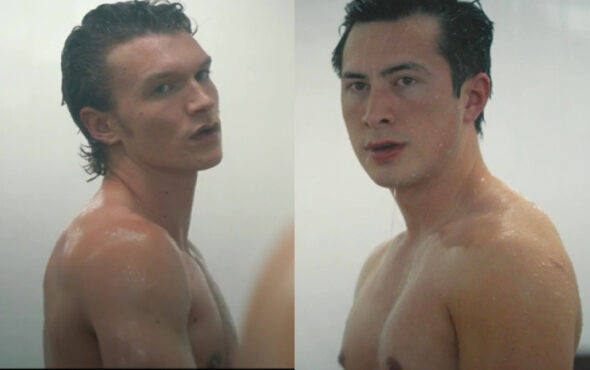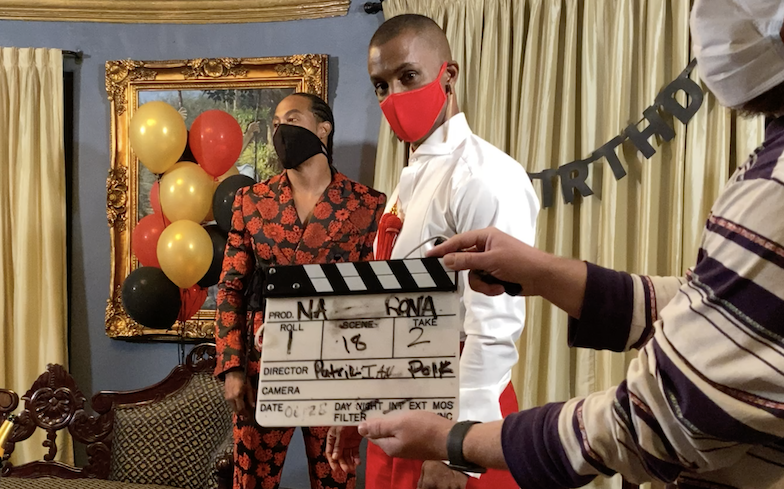
Noah’s Arc, the trailblazing LGBTQ+ dramedy that made history as the first American series with a cast of all-Black and gay characters, reunited after 15 years for a virtual reunion episode earlier this week to high critical acclaim.
Notable for tackling social issues that weren’t discussed on television at the time, such as same-sex dating, same-sex marriage, same-sex parenthood, HIV/AIDS awareness and homophobia, the reunion saw the cast address the ongoing Black Lives Matter protests across the United States and the need for social distancing to combat COVID-19.
The special raised money for several Black LGBTQ+ non-profit organisations such as Birmingham AIDS Outreach, CASA Ruby, G.L.I.T.S (Gays & Lesbians Living In a Transgender Society), In The Meantime Men’s Group, LGBT Detroit, Mobilizing Our Brothers Initiative (MOBI) and The Oakland LGBTQ Community Center. Fans have already raised $10,000.
To celebrate the long-awaited return of Noah’s Arc, we caught up with cast members – and on-screen power couple – Darryl Stephens (Noah Nicholson) and Jensen Atwood (Wade Robinson) to discuss the virtual reunion, how the series impacted their lives – and the television industry – and the lack of progress for Black and LGBTQ+ characters in mainstream media.
Can you believe it’s been 15 years since Noah’s Arc?
Darryl: That seems like it shouldn’t be… That doesn’t sound right, does it? Like, 15?
Jensen: It doesn’t seem like it’s been that long, but it’s very surreal being back on set with the guys.
Darryl: It feels like a different lifetime. We were very different people back then.
Fans have been campaigning for this ever since the show went off the air, how did this finally come to be and what was your initial response?
Darryl: After the film debuted in 2008, there has been a number of conversations around spin-offs for the series. They didn’t want the show to come back as Noah’s Arc, they wanted to do something else and certain characters would be maintained and others would be brought in. That went on for about two or three years, is that right Jensen?
Jensen: Since it’s been over, it’s been trying to come back.
Darryl: [Laughs] Exactly. So two or three years after the spin-off didn’t happen, we all went back to our lives and then maybe three or four years ago, Patrick was reaching out to people saying, ‘So, if there was to be a reboot of some sort, would you all be interested?’ Given that everybody had gone back to their lives and had careers around other things, it was challenging to get everyone available at the same time. I think what happened this time around, is because we’re all locked in our houses and sitting at home, it just made sense to get back together.’
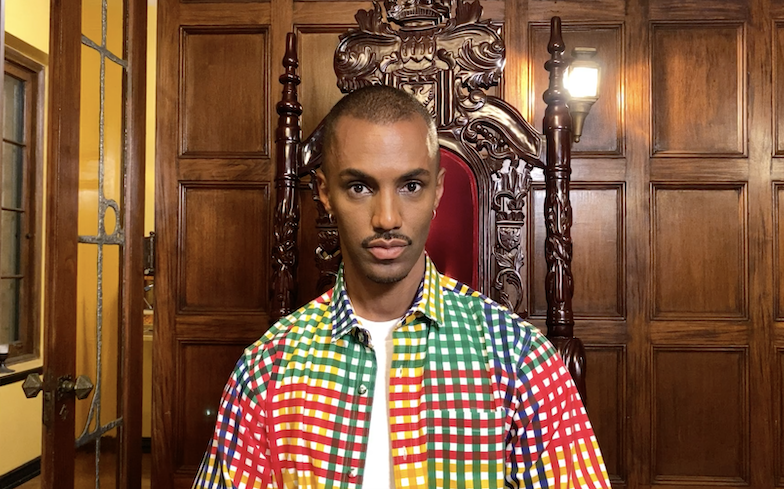
What spin-offs were floated around?
Darryl: We didn’t get a lot of details on that. There were talks of a few different iterations. As I understood, there was going to be one where Noah and Wade move to New York because one of them got to be a showrunner on a series, with the other guys having a guest arc here and there. There was another one with Robbie’s character Alex raising his son OJ, who has been going through some identity revelations. Let’s just say, OJ would come to learn who they are.
Jensen: I don’t know if you knew it Darryl, but they were also working on a stage play. I think it might still be in the works!
Darryl: I didn’t hear about that! Wow.
What was it like to embody these characters again?
Darryl: It was a trip, right Jensen? It was weird! For me, it was a little tough tapping into Noah’s… sweetness. Not that I’m not a nice guy, but there is a very soft energy to Noah that I don’t necessarily always carry with me. I had to really slow down and take the edge off of myself! Noah is sweetie pie.
Jensen: Like Darryl said, it seemed like it was a lifetime ago, so it was like jumping in a time machine and going to visit somebody you hadn’t seen in a long time. I had to look at a few episodes myself to remember who Wade is.
Darryl: Right.
What kind of impact did the show have on your lives?
Darryl: The fans have made the experience of being on this show such an incredible experience. They are so loving, so loyal and so excited to hear from us and to tell us what the show meant to them. It’s been such a huge part of my life to connect with the people who were touched by this show. We talk about it sometimes in interviews, when people ask us if we’ll ever be able to inhabit a character like with these characters. Part of me is like, ‘Of course, I’m an actor,’ and another part of me says, ‘I don’t know if any other character will ever be as significant to me.’ In that way, Noah has been an incredible clue to the power of putting people on screen who haven’t seen themselves. It’s incredible to have people respond in the way they have.
Jensen: Acting is my passion and I love being a storyteller, but I didn’t realise the impact that my work could have on so many people. That’s what Noah’s Arc did for me, it showed me that my love for acting can be so much more than just acting. It can change the world.
During your initial run, did you have any idea how groundbreaking the show would become?
Jensen: No way, not me.
Darryl: There was no way, right?
Jensen: Not for me. I knew it would be ‘risqué’ because of the time and the characters and the content. I knew it would be an opportunity for me to showcase my acting, but as far as it having the profound effect it had on the world… The idea that it’s helped people in their lives? I would’ve never have guessed that.
Darryl: When we were in the middle of it… We hear from people and that’s really the only way we can grasp the impact of the show. When we saw it, we already shot it… you know? I think it’s a very different experience to turning your TV on and seeing it happening, than it is to have been shooting stuff in Patrick’s apartment for years and wondering if it’s going to get picked up! It’s a different experience for us. There’s a part of me that almost wishes I could’ve experienced it that way, as a Black queer man myself. I would’ve loved to have turned on my TV and seen these characters giving each other life.
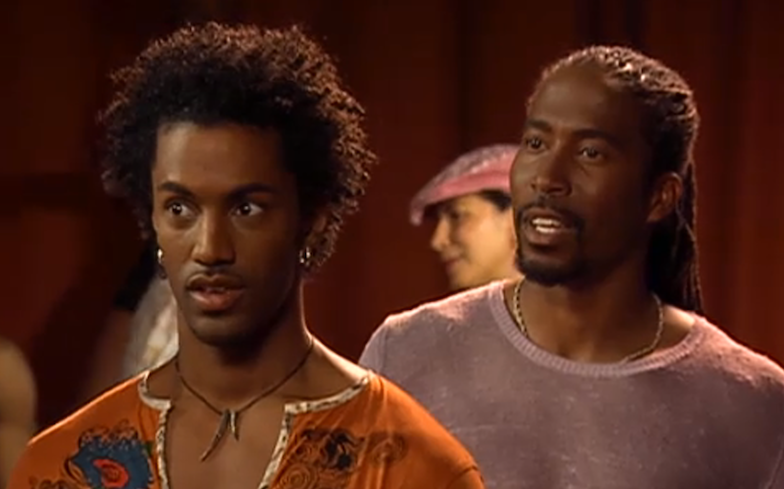
What was your response when you heard Noah’s Arc wasn’t returning for a third season?
Jensen: WTF.
Darryl: [Laughs] The money was always a little bit like… eh. It always felt like a very low-budget project that could be taken from underneath us at any moment, so it wasn’t shocking to me, but we were waiting for months and months and months to get the greenlight for a third season. After a month we were like, ‘This can’t be good. They would’ve told us by now, right?’ When we got the official word, we also learned that we were going to be doing a feature film, so it was like, ‘Okay, we didn’t get a third season, but we’re going to do a feature film that’s going to tie it all together.’ It was a double edged sword. After the movie, it really started to set in that we were not going to see these characters again, that it really was goodbye. That was sad, because by the end of the second season, it felt like we were getting into the rhythm of how we were going to play the characters. It was the first time most, if not all of us, had been lead characters in a TV show. The first season was very trial and error, and the second season we were getting out wits about us. It was a bummer that we didn’t get to further explore that. But you know… that’s life.
What was it like, getting the whole cast back together again?
Darryl: Jensen?
Jensen: [Laughs] Yeah, it was like old times to be honest. For some of us, it was like we never skipped a beat. But for some of us, we never lost contact. It’s interesting because some of us are friends beyond Noah’s Arc and were friends before Noah’s Arc. We have our own dynamics, and so it was cool, nostalgic and a little weird getting back to these characters, whose dynamics are very different than our regular lives, where we do talk to each other and see each other.
Darryl: Exactly. That was beautifully said. What he said!
What are your thoughts on how the landscape of television has evolved since Noah’s Arc for Black and LGBTQ+ characters?
Darryl: What we’ve seen since Noah’s Arc is that queer characters are now integrated into larger shows. But in the late 90s and early 00s, we had Will & Grace, Queer as Folk, Noah’s Arc and The L Word; shows that were very insular and depicted queer bubbles. Since Noah’s Arc, I would say that queer characters are integrated into larger stories but they are very rarely the main character. They’re the best friend, the brother, the sister or trans sibling, right? I feel like we’re being seen by more people but we’re not being seen, necessarily, having conversations that reflect our own specific experiences as often. Pose was 10 years after the Noah’s Arc movie. That was 2018. Pose literally came 10 years later. No Black queer characters had a leading role in 10 years? Really? That’s weird, right? Did nobody think, ‘Let’s make a show that has Black queer folk at the centre of the story’? It’s just weird to me that it took 10 years for Pose to happen and still, Pose is the only show on air that centres Black queer characters.
Jensen: Lena Waithe has one right now.
Darryl: Oh yes, Twenties. But, Hattie is the only one. It’s interesting, but it’s not necessarily encouraging. I feel like this generation doesn’t know what an LGBTQ+ show looks like. Beyond Pose, there was reboots of Tales of the City and The L Word, both of which centred around queer folks, but those were all reboots of shows that happened decades ago. It’s interesting that’s not been many new stories.
Do you think this reunion could lead to a reboot in the future?
Darryl: I think we’re all definitely open to that idea. What’s been remarkable for me is the industry buzz around it. I feel like when we were on the air, nobody at Deadline was talking to us. Nobody at Entertainment Weekly was talking to us. I don’t know if it’s because of the timing because of the Black Lives Matter movement, but there’s been such a buzz around it. It’s interesting to consider that maybe the timing is right, finally, to revisit these characters and give them some new stories.
Jensen: I agree with Darryl. It’s weird because what people have said consistently is how ahead of its time it was. It would be very interesting now to see if this is the time.
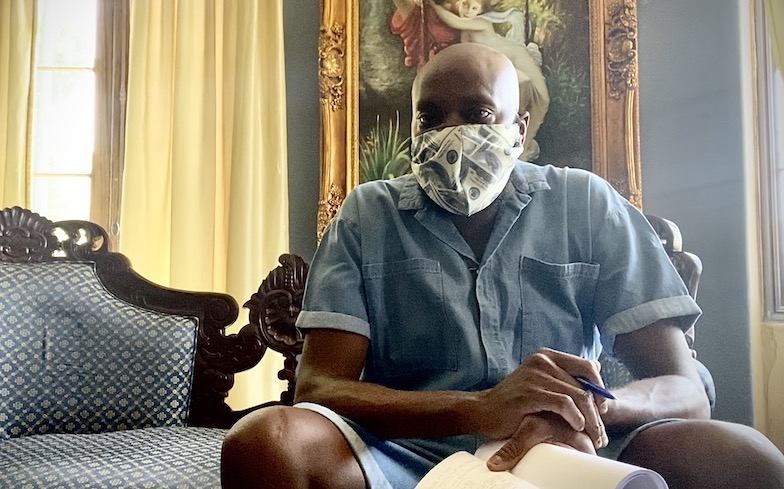
The reunion episode found the characters in the middle of the coronavirus pandemic and the current protests against police brutality and racial injustice – what kind of impact do you hope this will have on viewers?
Darryl: We’re all so isolated right now, so what I think is cool about this episode is that nobody touches on the conversations that a lot of us are having, or the ones we feel the need to be having. There’s a lot of gay men who are comfortable being very social, whether that involves hanging out a bar or being on an app, this time period of being stuck in our homes has been very challenging for a lot of people, but gay men in particular. We had that conversation with Ricky, where he’s talking about what it’s like to be single in this time, and I think that’s a really important conversation. Where are we finding intimacy and where are we connecting with people, when all of our friends are boo’d up at home? I have a number of friends who are single right now and six months ago, we weren’t questioning their singlehood at all. Like, ‘Yeah I’m free, I can do whatever I want, go where I want.’ Now it’s like, ‘How the fuck am I still in this house by myself?’ It’s a really tough conversation and it feels really timely for gay men and for gay men of colour to be talking about intimacy in this era. Police brutality against Black folks feels like a subject that will never not be talked about, and until they get their shit together and realise we’re human beings, it will always be timely.
Jensen: This is extremely important. It’s not a trending topic. It’s not a fad. It’s something that, unfortunately, our country is based on. It’s going to take a lot more than memes and posts. It’s going to take actual change – political change. It’s going to be a long fight and this is just the beginning.
Darryl: This time around, I do feel like I’m seeing more progress than I’ve ever seen in my life. People are actually changed around this subject and I really hope that the engagement carries us into voting booths in November, so that we can actually affect some change. The wake-up call that our current president has thrust upon all of us is actually, I think, invaluable. We would not necessarily be aware of how backwards our politics have forever been if we hadn’t gotten on a bullhorn and broadcasting all of the conversations that have been happening behind closed doors of a rich white man – rich old white men. He got on stage in front of the cameras and blurted it all out. So now, hopefully, people are going to take this stuff seriously and carry this momentum to the voting booths. What’s almost comforting about it, I have to say this, is that they are so desperate right now, that that fool is their last hope. That orange, painted, fat fool with the comb over is your last hope? That’s pathetic. We went from Barack Obama to Donald Trump. That’s the best you got?
You can watch Noah’s Arc: The Rona Chronicles in full below, and donate to Black LGBTQ+ non-profit organisations here.
[arve url=”https://www.youtube.com/watch?v=R2ZNLxgGuaY&feature=emb_title” /]
